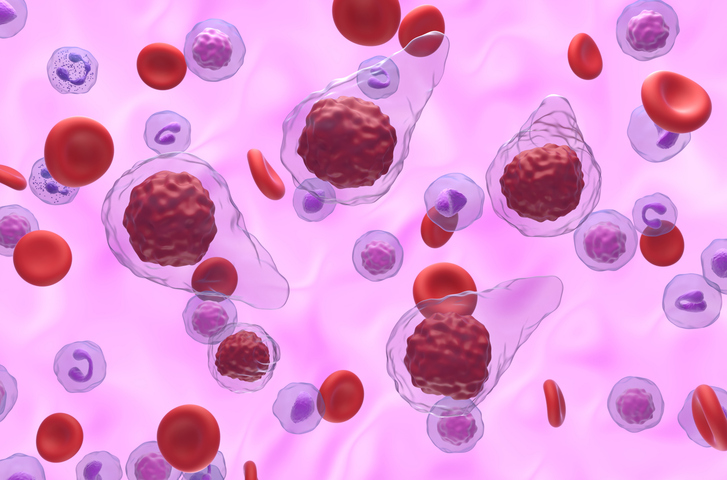Haifa Kathrin Al-Ali, MD, Covers Outcomes of Combined BET, JAK Inhibition in Myelofibrosis
By Haifa Kathrin Al-Ali, MD - Last Updated: March 4, 2024Haifa Kathrin Al-Ali, MD, a hematologist and oncologist at the University Hospital of Halle in Germany, met with Blood Cancers Today to describe a presentation at the 65th American Society of Hematology Annual Meeting & Exposition on a trial combining a BET inhibitor and JAK inhibitor in patients with myelofibrosis.
“The rationale for this trial was, as we know, JAK inhibitors are the standard of care, but with all the efficacy results we know now there are many limitations, particularly the loss of response. So, it is always important to find new ways to try to improve the outcome of patients with myelofibrosis.”
The phase I/II study used a novel method of epigenetic modulation to regulate gene expression and control relevant protein and cytokine levels. Participants were treated with BMS-986158, a BET inhibitor, combined with ruxolitinib or fedratinib in first- or second-line therapy, respectively.
“What we could say, and I think this is very important, is that more than 80% of patients after a median follow-up of 53 weeks are still on first-line combination treatment. Also, around 80% of patients are still on [second-line] treatment after a median follow-up of 24 weeks. This shows that the tolerability of the combination is quite acceptable.”
Dr. Al-Ali noted that the researchers saw very nice spleen volume reductions in both the first- and second-line treatment patients, but stated these efficacy findings should be interpreted with caution due to the small number of patients enrolled.
“In conclusion, we could say that the combination of a BET inhibitor with a JAK inhibitor, both in the first-line setting and in the second-line setting, is a reasonable approach, and might improve the outcome of patients with myelofibrosis.”






 © 2025 Mashup Media, LLC, a Formedics Property. All Rights Reserved.
© 2025 Mashup Media, LLC, a Formedics Property. All Rights Reserved.